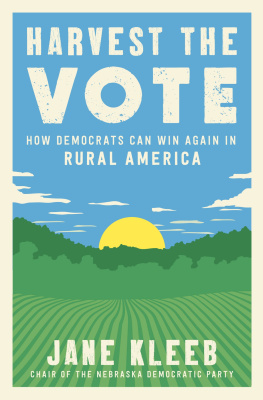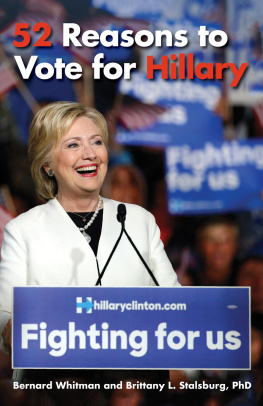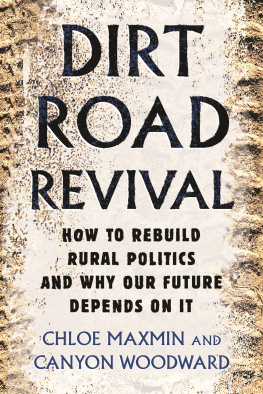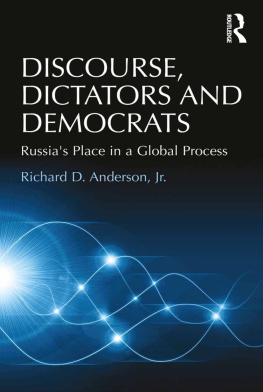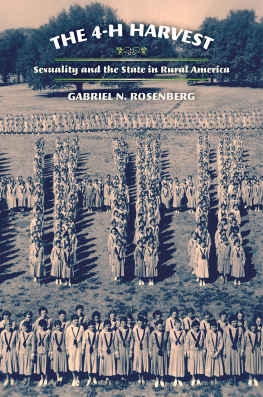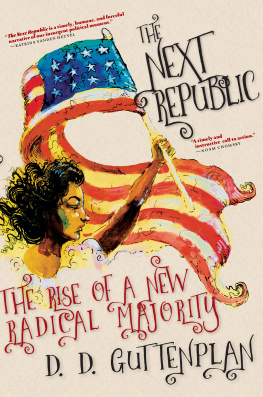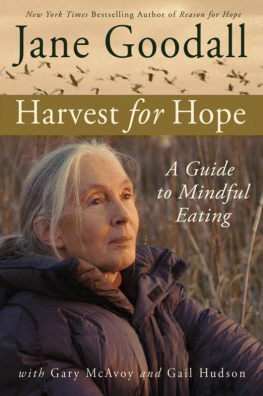The eaters and the feeders.
REVEREND JESSE JACKSON
I n 1985, Reverend Jesse Jackson had the answer to how we bridge the urban and rural divide and showed us all how Democrats can stand with rural voters. He traveled to the small rural town of Chillicothe, Missouri, to stand with farmers in the middle of the farm crisis, a time when a record number of families were losing their farms and the suicide rate among farmers had skyrocketed. As he sat on a tractor, he proclaimed the eaters and the feeders needed to unite for real economic and land justice. The land is such a crucial part of our country, our politics, our policy. And yet its taken for granted, both by politicians and by a large swath of voters. The land connects us all. Even if you have never visited a rural community in your state, we all rely on the food, fiber, and energy created in our small towns across the United States. The weathered hands of a farmer have a lot in common with the calloused hands of a factory worker. Both rural moms and urban moms worry about not being able to get care for her child. The feeling of being left behind and forgotten by our elected officials because big corporations trump the people is a universal feeling among working- and middle-class families no matter where you live.
Rural is a way of life. In our nations politics, the divide between urban and rural could easily be written off as a problem Democrats should ignore. I have heard many versions of this, from Ignore the rural areas and go where the people are in the urban centers to Why should we give a damn about people voting against their own interests? and Rural people are racist and get what they deserve. Then I walk around downtown Hastings, Nebraska, where my husband and I are raising our three daughters, and see a new brewery using local products, a farmers market that would put any Whole Foods to shame, and a boutique that sells all the hip jeans and kids clothes you would need. I personally know the people who have been forgotten but are still working to keep young people from leaving by building a new library and a main street downtown with green, open spaces. Ive been a part of building a playground with all volunteers and know what it meant when over two thousand people stood with the Gaspers family when their son Kevin was killed in Iraq. Our little town of Hastings is consistently pushing back against draconian statewide cuts by raising local taxes to keep the schools and hospital open. The Republican Party takes us flyover voters for granted, and the Democratic Party has given up on us.
IT WAS EARLY 2006, AND JEFF HOFFMAN, THE RURAL CAUCUS CHAIR OF THE Young Democrats of America (YDA), called me asking if I would be open to having a young candidate from a rural town speak at our state convention. I was the executive director of YDA and told Jeff no way. I went on to explain that I was sure this candidate, Scott Kleeb, was actually a Republican who could not get out of his partys primary, and there was no way he was going to win anyway. Jeff insisted I take a look at his bio and rsum. When the email arrived, it also included a picture of a tall ranch hand standing in the middle of a vast open field. To say I was smitten is an understatement. That picture got passed around and became my screen saver, and that of many other urban Democrats back then. I called Jeff back and said, Sure, lets invite Scott to come speak at the convention!
I even offered to head out to rural Nebraska to provide training on the innovative peer-to-peer young voter program we created in 2004. This was a program that started with the basic premise that when you talk to and engage voters, they vote. Implementing the program led to huge increases in turnout. We tested out lots of messaging and methods of voter contact over several years. But in the end, young people are like all voters. They want to be talked to, they want to be heard, and they want to know that the candidates and the Democratic Party care enough about them to include them in mailings, ads, policies, and messaging. My first trip to Nebraska was planned for later that summer.
Before coming to Nebraska, I had never worked in a rural community. I spent the early years of my career working with AmeriCorps programs in schools, national youth vote projects, and advocacy for eating disorders and mental health care. My career path took me to the great cities of Tallahassee, Washington, D.C., and Philadelphia. When I arrived in the small rural towns that make up Greater Nebraska in June 2006, I was instantly struck by how everyone said hello, raised a finger in a silent wave when you met them on the road (not the middle finger!), and communicated an overall sense of looking out for one another. I quickly saw that my assumptions about Scott were wrong. He was running a strong race and was gaining on his Republican opponent in the polls. He did this by running a positive campaign. Surprisingly, he did it while projecting a progressive vision in a district that is mostly farm and ranch country. When Scott spoke, he never talked down or dumbed down the complicated issues facing rural Nebraska. He challenged all those he spoke with to punch above their weight and encouraged them to become part of a growing group of people with a common desire to help build rural America. Scott believed in the rural voters of Nebraska just as much as they believed in him. While Scott did not win his race, he came closer to doing so in that district than any Democrat had done in over fifty years.
On our first date, Scott grabbed a six-pack of beer and cake for the cows as we headed out to his pickup truck. Scott was working as a ranch hand on the McGinn Ranch, his cousins operation, outside the small Sandhills town of Dunning, an area with many more cattle than people. We drove to the top of one of the highest hills in the area, from which we could watch the birds, deer, and cows on the prairie below us. Blades of grass danced in the wind like an ocean around his truck. As I learned to feed cattle the cake (little morsels of goodness consisting of alfalfa and molasses), I began to understand the deep love family ranchers have for their livestock. In fact, on many family ranches, the cows often have names, and the rancher can point out to you the good mamas and those who might give you a run for your money. The way ranchers and farmers treat their livestock and land is something I get defensive about when I see a tweet or blog post on how eating meat is animal cruelty. Theres no question industrial agriculture hurts animals, workers, and our environment, but I have never met a family farmer or rancher who would not walk straight into a blizzard to save their animals or to help their neighbors.
The sunset colors filled the sky and we sat there in Scotts truck listening to music and the soft lowing of cattle all around us. Over lots of dates just like this one, including the time I tumbled into a patch of burrs because I had no idea how to drive a four-wheeler, I fell in love with both the Sandhills and rural Nebraska. What roped me in was the way the stars fill the night sky, the teasing of the local bartender as I order the proper Nebraska drink, red beer (this is beer mixed with tomato juicetry it, youll find it life changing!), and the way in which everyone in town is part of the ranching communitywhether its the employees at the feedstore, the local vet, the town banker, teachers in the school, or the ranchers themselves. Small rural towns have a shared spirit of Were all in this together. I first fell in love with the Sandhills, but to the likely chagrin of many of the Republicans who run the state, Scott and I also fell in love, married, and chose rural Nebraska as our home.

